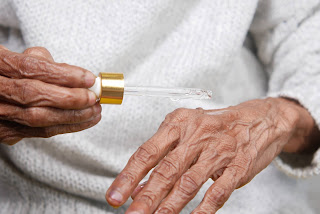What do you know about emergency contraception?
What is emergency contraception ?
To lessen the chance of pregnancy following unprotected intercourse, emergency contraception (EC) is used.
Three types of emergency contraception are available.
- insertion of a copper intra-uterine device (IUD)
- ulipristal acetate emergency contraceptive pill (UPA-ECP)
- levonorgestrel emergency contraceptive pill (LNG-ECP)
Copper IUD
Copper IUD inserted by a qualified doctor or nurse within five days of unprotected intercourse.
How does Copper IUD work?
The copper IUD prevents egg fertilization, prevents sperm migration, and may also stop the implantation of a fertilized egg.
Both varieties of emergency contraceptive pills (ECP) function by preventing or postponing the ovary's release of an embryo (ovulation). It is erroneous to refer to the ECP as the morning-after pill. It can be taken up to five days after unprotected sex, though the earlier it is taken, the more successful it is.
ECPs do not stop a fertilized embryo from implanting.
Accidental ECP use during pregnancy has no negative effects on the growing fetus or embryo.
Abortion is not brought on by the ECP.
emergency contraceptive pill
An egg's discharge from a woman's ovaries is stopped or delayed by emergency contraceptive pills (ovulation). Pills for emergency contraception do not result in abortions. Even if you take an emergency contraceptive pill while already pregnant, there is no damage done.
How to use it ?
The sooner you start taking emergency contraceptive pills, the better they perform. They were formerly known as "morning after medications" for this reason.
After unprotected sex, the levonorgestrel emergency contraceptive pill must be administered within 72 hours (3 days). Up to 96 hours later, it might still have some impact (4 days). It can be applied multiple times in a session.
Take the ulipristal acetate tablet within 120 hours (5 days) following unprotected intercourse
It is not advised to take ulipristal acetate and the levonorgestrel emergency contraceptive pill during the same menstrual period.
What are the common side effects?
The ECP can rarely cause nausea, breast pain, headaches and spot bleeding. Usually, side effects disappear after two days. Consult a doctor if you have any concerns about any adverse effects.
The ECP has no negative effects on pregnancy or a growing fetus.
When you should consider emergency contraception
If there was a chance of an unplanned pregnancy, emergency contraception could be used.
These would comprise:
- Unprotected sex
- A failure of a contraceptive (For instance, if your condom breaks or if you've skipped more than one pill while taking the Pill.)
How reliable is emergency birth control?
About 85% of anticipated pregnancies are avoided by emergency contraceptive pills. In comparison to the levonorgestrel emergency contraceptive pill, ulipristal acetate is marginally more successful. They work best if they are taken as soon as possible after unprotected sex a copper IUD is the most effective emergency contraceptive technique (more than 99%)
Keep in mind that no form of emergency contraception prevents conception completely. If you engage in unprotected sex again during the same menstrual period, the emergency contraceptive pill will not prevent pregnancy. To ensure that the emergency contraceptive tablet has been effective and you are not pregnant, you may need to take a second pregnancy test. A follow-up examination can be discussed with the doctor or pharmacist.
Emergency contraception does not offer protection from sexually transmitted diseases.







Comments
Post a Comment